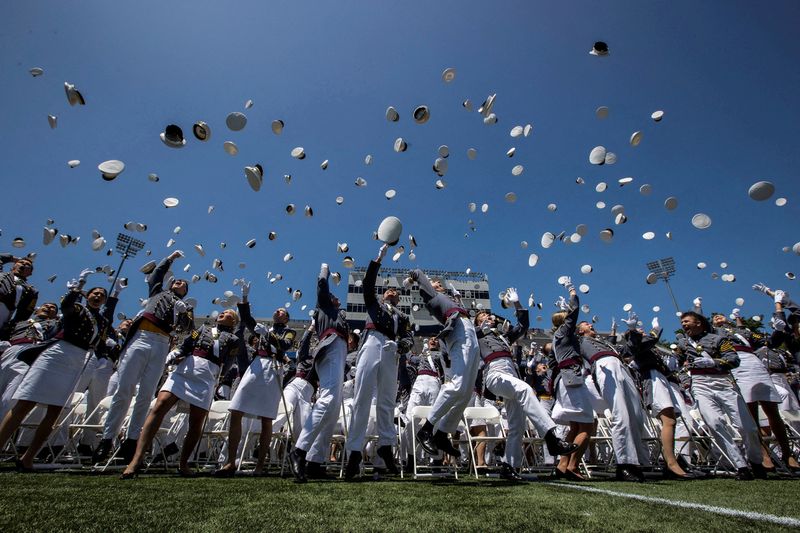By Rachel Nostrant
(Reuters) - The group that took its case against affirmative action in college admissions to the U.S. Supreme Court and won is seeking to end an exemption for military schools, the founder of Students for Fair Admissions said on Thursday.
Edward Blum's group launched its new campaign with a website called West Point Not Fair on which it asks: "Were you rejected from West Point? Or the Naval Academy or the Air Force Academy?
"It may be because you’re the wrong race."
The group is using the site to collect the names, contact information and stories of people who were rejected by West Point, the Naval Academy or the Air Force Academy or who are planning to apply to those institutions. Blum said in an interview that people who respond could be possible litigants in any suit by Students for Fair Admissions (SFFA).
Blum said he hopes the military academies will clarify in the next few weeks whether they would continue to use race and ethnicity as admissions factors.
"If they intend to continue using race and ethnicity as a factor, then it is very likely that litigation will follow," he said.
Officials at the academies have told Reuters they would continue to use race as a factor while awaiting guidance from the Department of Defense, which has said it is considering the court decision and could not say when it would issue guidance.
The Department of Defense did not immediately respond to a Reuters request for comment on Thursday's SFFA website launch.
When the U.S. Supreme Court struck down race-conscious admissions programs at Harvard University and the University of North Carolina in June, it was the culmination of a decades-long legal fight by Blum against what he views as discrimination against mostly white and Asian students in college admissions. The court ruling effectively banned policies long used to raise the number of Black, Hispanic and other underrepresented minority students on American campuses.

A footnote in the court's decision exempted the nation's military academies.
Duke University law professor Charlie Dunlap, who is a retired Air Force major general, said the court's footnote says the military may have "distinct interests" that it did not rule on, thereby exempting the academies. Dunlap added in an email to Reuters, "The Court rarely supplants its judgment for that of military leaders and especially, the elected branches of government."